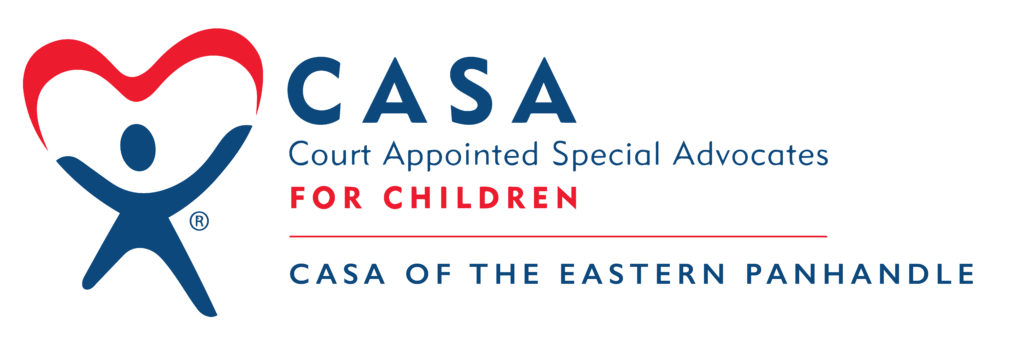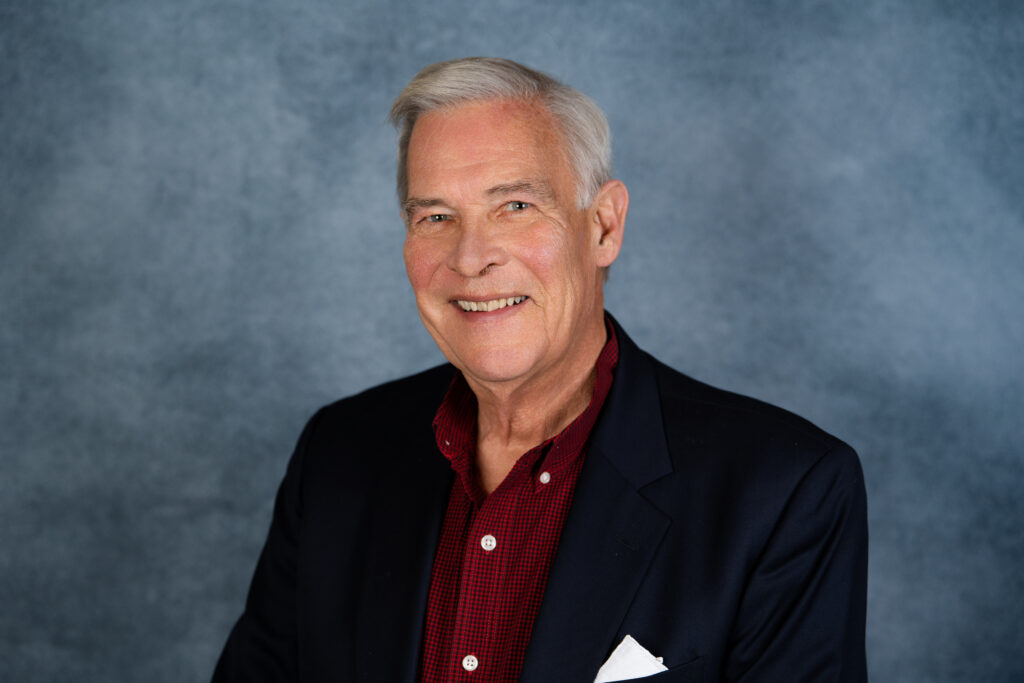We are so thankful to announce that Rev. G.T. Schramm will continue as President of the CASA-EP Board of Directors in 2025.
In 1983, the Rev. G.T. Schramm and his young family set up roots in Shepherdstown, West Virginia, where G.T. would serve for four decades as Rector at Trinity Episcopal Church. G.T., as he is affectionally called by those that know him, has a down-to-earth, welcoming disposition as a pastor.
During his more than 40 years with Trinity, G.T. volunteered to help build and support meaningful organizations and facilities throughout the Eastern Panhandle. He was a founding member of the Shepherdstown Rotary Club, which today supports local education, environmental, and financial programs. As a visionary, G.T. saw potential for even greater services, such as Hospice of the Panhandle, where he currently sits as President of the Board.
“I was wandering through Jefferson County and looking for land to build an inpatient hospice wing. I knew it would be a heavy financial lift, so we started raising money,” says G.T. “And we did it. We raised $4 million, the largest capital fund campaign ever raised in the Eastern Panhandle.”
Today, Hospice of the Panhandle provides expert hospice and palliative care and support services throughout Berkeley, Hampshire, Jefferson, and Morgan counties.
In January 2024, G.T. retired from Trinity. In retirement, he’s ramping up his volunteer work, which includes his role as President of the Board of CASA of the Eastern Panhandle (CASA-EP).
“Five years ago on a Sunday morning, Carol Asam (emeritus board member) said to me, ‘G.T., CASA needs two new board members, and we think you should be one of them.’” G.T. had a general sense of what CASA did but admits he had no idea the support they give to the local foster care system, especially the children within that system. “It’s not until you join CASA that you realize just how many children need an advocate. These children often have no one, and for some, a CASA volunteer is the only person they do have.”
Joining CASA opened G.T. to understanding how much the organization does for children and families outside of its advocacy work.
“One day, I received a phone call from a congregation member about a child sleeping in his car. I put them in touch with CASA, and in a matter of days, this young man had an apartment, a bed, sheets to sleep on – everything we take for granted.”
G.T. explains that CASA is so well connected that they can go beyond advocacy work to help children and families access necessities they could never get on their own.
Today, G.T. is excited to be part of the organization’s growth. This includes expanding CASA-EP’s Fostering Futures program, which helps children 13 years of age and older who have experienced abuse or neglect prepare to transition to independent adulthood. Once a child in the foster system turns 18, they’re essentially on their own, notes G.T., and many go off into the world without basic life skills.
Fostering Futures provides mentoring and programming to help these children build practical skills. G.T. is looking to grow Foster Futures’ scholarship program, which will help kids go to trade school or college.
“These children don’t have anyone helping them with their future education, but through fundraising efforts, we’re building a scholarship program that will break down barriers to higher education for kids who would never have access to it. Education is one way to help stop the cycle of abuse and neglect.”
As President of the Board, G.T. is committed to helping the organization grow to become more financially stable and look beyond grant dollars.
“Grants like Victims of Crime Act Assistance (VOCA) have been beneficial, but they aren’t long-term. To help more children and expand on our service capabilities, like reunification efforts, we have to find ways to raise more money.”
G.T. also notes that growing financially means training more volunteers and expanding personnel – all of which also help relieve an overburdened child welfare system.
While there is so much on the horizon to be excited about, G.T. does lose sleep over the children in our foster care system, especially those who are victims of parental opioid use.
“The opioid crisis has caused so much destruction in our community, and it’s the children who pay the highest price. I marvel at the number of hours and dedication our volunteers give to these children. They do it gracefully and cheerfully – all for the sake of the children.”
As President, G.T. is working to get out a clear message: investing in CASA-EP is an investment in the community.
“CASA-EP helps break the cycles of addiction, abuse, maltreatment, and poverty. It shows children another way of life and helps form healthier family units, making our community healthier. This benefits everybody.”
To learn more about how you give to CASA-EP or become a volunteer, please visit https://www.mycasaep.org/




